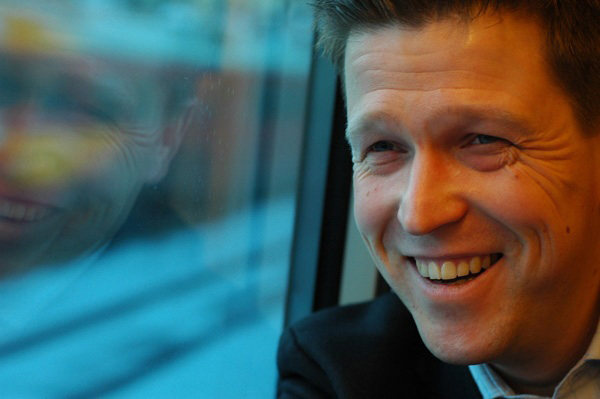Q&A with Klaus Haro

KINOTAR OY
Finnish director Klaus Haro comes to the James Bridges Theater on Jan. 12 for a screening of his film “Letters to Father Jacob,” followed by a Q&A session moderated by Professor Arne Lunde and Professor Kendra Willson. The film has been chosen to represent Finland at this year’s Academy Awards in the Best Foreign Film category.
By Catherine Flanagan
Jan. 10, 2010 9:33 p.m.
“Letters to Father Jacob” is a story about a pardoned ex-convict, Leila, who goes to live and work with a blind, elderly priest, Father Jacob, who helps people through letters sent to him. When the letters cease, the helping role reverses. The Finnish film will be showing at the James Bridge Theater in Melnitz Hall on Tuesday, Jan. 12 at 7:30 p.m., followed by a Q&A session with the film’s director Klaus Haro. The Daily Bruin’s Catherine Flanagan spoke with Haro about the journey of making this film and why film students make for the toughest audience.
Daily Bruin: How did you come up with the idea for “Letters to Father Jacob?”
Klaus Haro: I actually did not. … One day I was in my house with the flu, and a script came in the mail. … Usually I don’t have the time to read scripts from people I don’t know. Since I said I had the flu, I thought I might as well look at it. I read a few pages and thought there was something there. I read some more, and these actors came to my mind. I thought if I could make a little intimate movie just for the joy of working with the actors, then it would be worthwhile.
DB: What does the story that the script presents mean to you?
KH: When I read the script, I just felt on a very basic level that … I wanted to see what would happen when this woman, who had been in prison … goes to live with a very gentle person who believes in the good in everyone. … I also loved the combination of humor and holiness. … So as I worked on it, it became very much a story about human fragility. For me, the film is very much about who you are when you are at your weakest, who you are when you are no longer successful and no longer needed and when you are no longer sure of what your life mission is. The film is about human value and that people are what they achieve.
DB: How long did it take for the film to come to full fruition, from start to finish?
KH: This was a very short process; I would say from when I first read the script to the final cut was a little bit more than a year. It was very short, maybe because the film was easier to piece together both financially and practically.
DB: And were you happy with the end result, even while taking the minimal approach?
KH: I must say that out of all my four films, this was the most awarding process just because of the intimacy of the film. For the first time I could say that I was really enjoying this. I was able to really concentrate on the story and being close with the actors. You don’t have the enormous crew or a lot of extras. You’re not drained on the first day but have the feeling that you cannot wait till the next day to work with these actors again. It came as a gift to me, and it still feels like a gift.
DB: How do you feel about being screened at UCLA?
KH: I’m thrilled about it. I went to film school in Finland, and every day I still refer to my film school experience. Some things were really good, and some things not so much. But I know the film school audience, and that’s the toughest audience you can have. I’m going to be nervous showing the school the film.
DB: You have as a director received more than 60 awards in international film festivals. That’s quite a big number.
KH: I’m not used to winning prizes. I still feel like I’m in film school. I still feel like, “Am I ever going to make my first feature film?” … If I could choose when I would have made my first film, it would have been when I was 12, after seeing Steven Spielberg’s “E.T.: The Extra-Terrestrial.” You see all these wonderful films and think, “Maybe one day I will be able to do something along these lines.” I was striving toward making a film for such a long time that I am still overwhelmed when my films get praised.
DB: The film has been chosen to represent Finland at the Oscars in the Best Foreign Film category.
KH: Obviously, out of all the Finnish films that are made here, this is the one that they think is the one to send; that is an honor. For me, I cannot describe how far the film community in Finland is different from that of Hollywood. It’s like night and day. There, it’s so tiny, everyone knows each other, and there is no money. So it feels very exciting how the film will be received here. I don’t know how to predict that, but I’m honored just being here and having the film presented. This journey and this particular film (are) so full of surprises, so let’s just see what happens. … We made this film, and every step along the way it has been getting bigger and bigger and gets better and better responses. Now we are here. I feel like a child full of wonder and awe having made this journey with the film.
E-mail Flanagan at [email protected].


